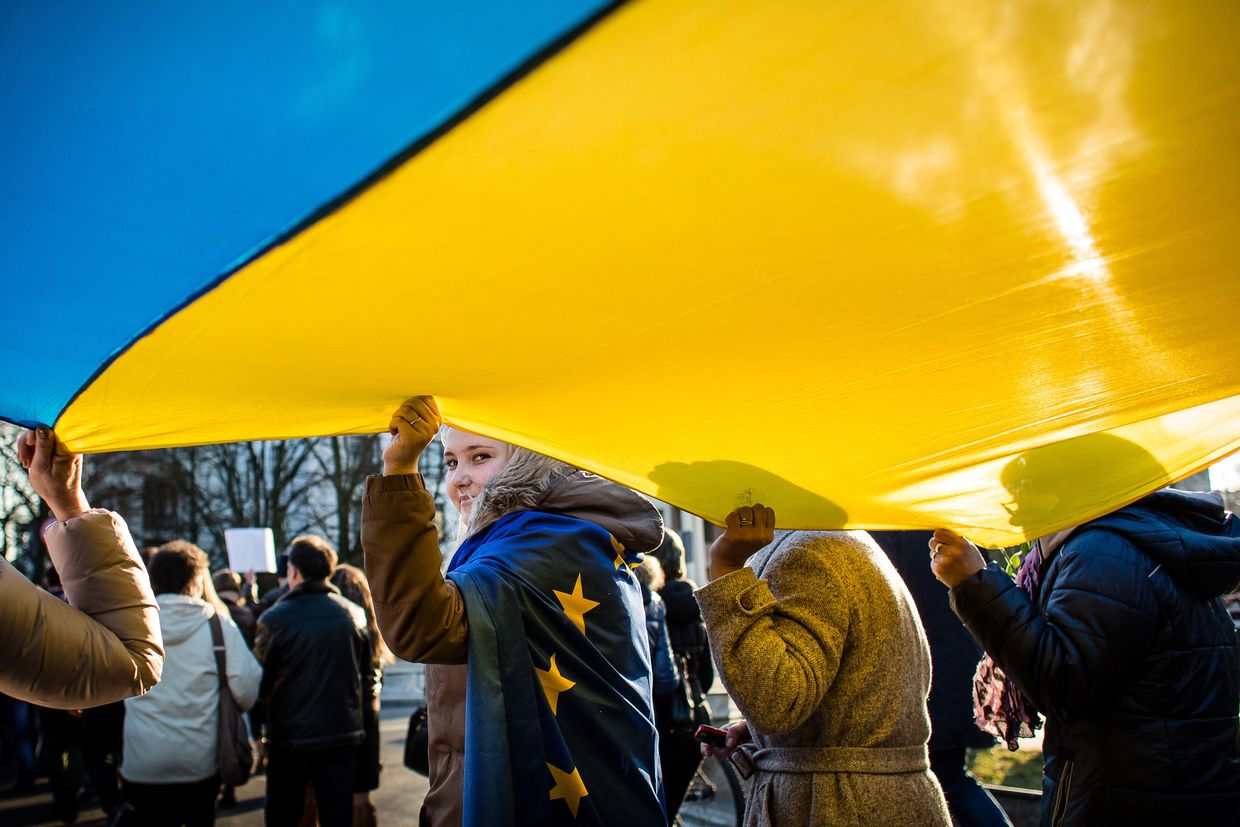Lithuania's PM, president in favor of helping Ukraine bring back military-aged men

Lithuanian President Gitanas Nauseda and Prime Minister Ingrida Simonyte voiced support for helping Ukraine bring back its military-aged men living abroad, but after consultations with the EU and Kyiv, LRT reported on April 29.
As Ukraine seeks to ramp up its mobilization efforts, it has introduced certain restrictions on consular services and issuing passports for Ukrainian men aged 18 to 60 living abroad.
Poland and Lithuania have already indicated that they are exploring ways to help Ukraine bring their fighting-aged men back home, but no clear steps have been presented.
"Ukraine needs to have its mobilization plans," Nauseda said on the LRT RADIO on April 29.
"Ukraine must have the means and instruments to invite its young men to serve their homeland. We must cooperate with Ukraine in every sense."
Simonyte said that some steps to help Kyiv should be taken, but they should be discussed on the EU level.
"We could probably look for some ways to make sure that a person has performed their mobilization duty or is exempted from it when we consider whether to extend their temporary residence permit," the prime minister suggested.
"But we need to work not only with the Ukrainian authorities but also more broadly because right now, the EU has the so-called temporary protection in place for Ukrainian people."
In October 2023, the EU officially prolonged the Temporary Protection Directive for Ukrainian refugees until March 2025.
Evelina Gudzinskaite, the head of Lithuania's Migration Department, said there is currently no legal basis necessitating Vilnius to help Ukraine bring back its citizens.
"Some national legislative initiatives would have to be taken to implement these decisions, but again, there would be a huge question of how this would be compatible with EU law," Gudzinskaite said.
Polish Defense Minister Wladyslaw Kosiniak-Kamysz said on April 24 that Warsaw may assist Kyiv with calling back its men living in Poland. Similar sentiments were voiced by Lithuania's Defense Minister Laurynas Kasciunas, who added that no specific decisions have been taken so far.
Radoslaw Sikorski, the head of Polish diplomacy, said on April 27 that returning men of draft age to Ukraine is "ethically ambiguous" and Ukraine will thus have to "take the initiative" in the process.
Ukraine's ambassador to Poland, Vasyl Zvarych, commented that Kyiv has not appealed to Warsaw for assistance in bringing back its citizens. Polish authorities also stressed they would continue to provide temporary protection for Ukrainian refugees, including those without passports.
Efforts to bring the men eligible for military service back from abroad are only part of a wider plan to replenish the Ukrainian Armed Forces's ranks. The country recently passed an updated mobilization law, which introduced penalties for citizens dodging the draft, such as the aforementioned limitations on consular services.












